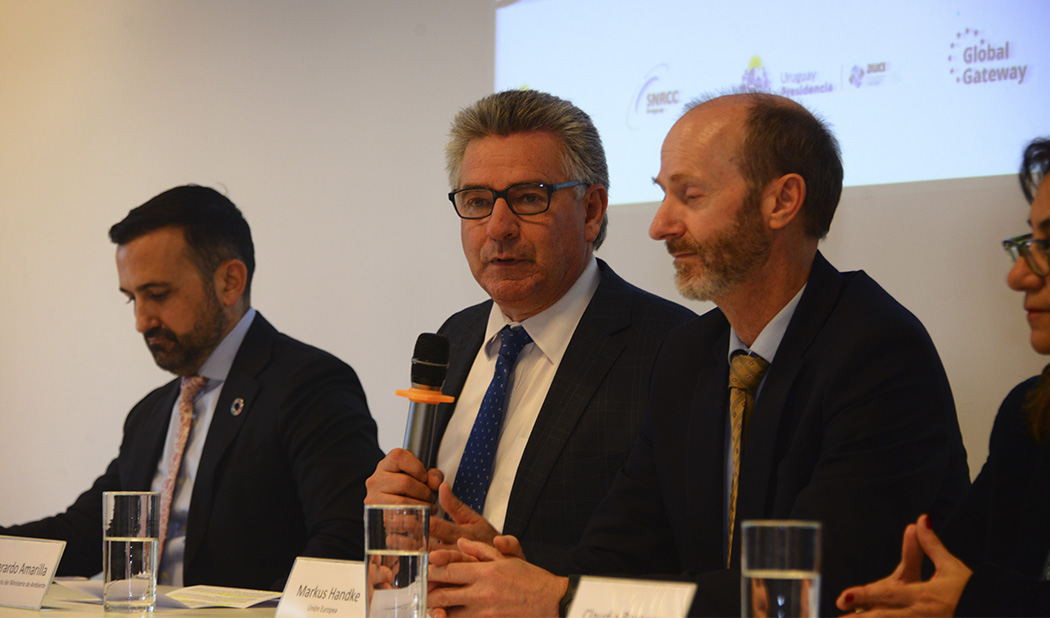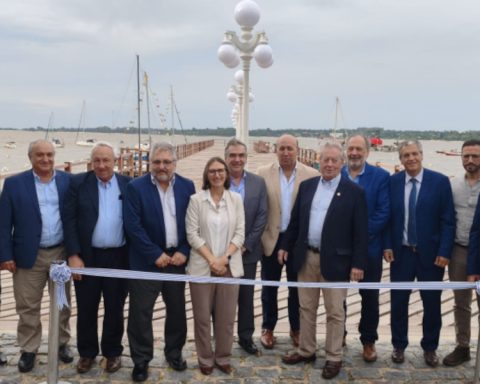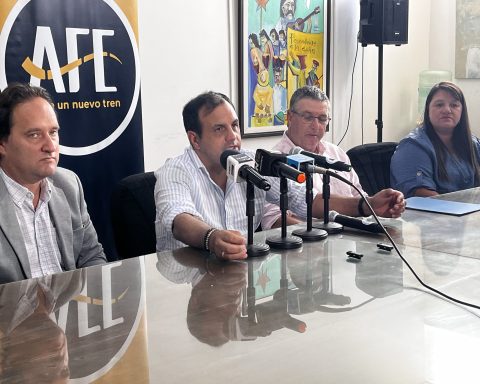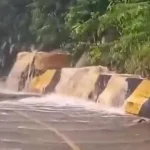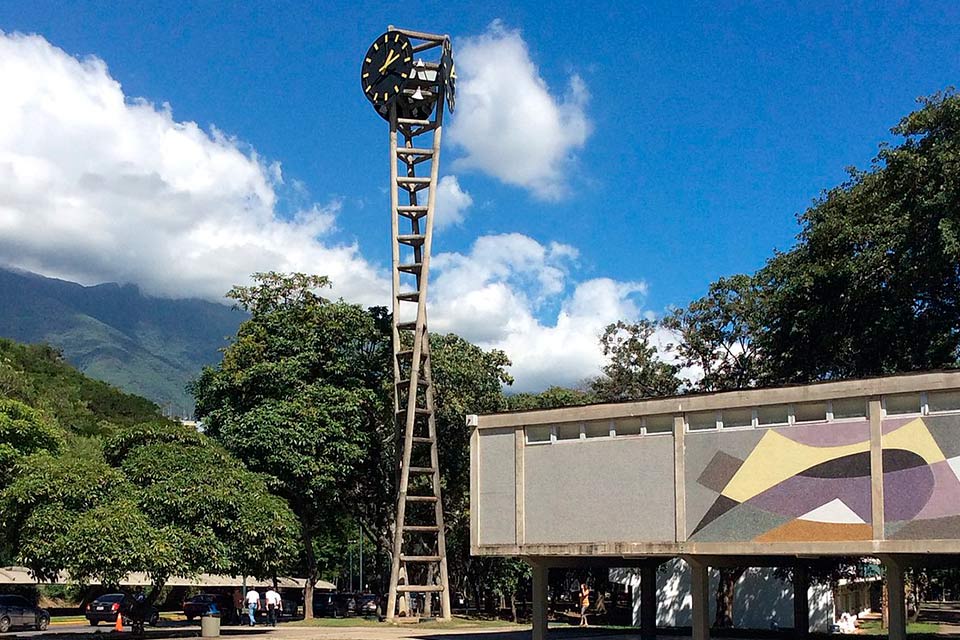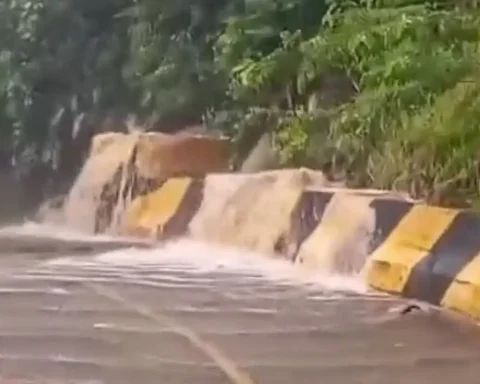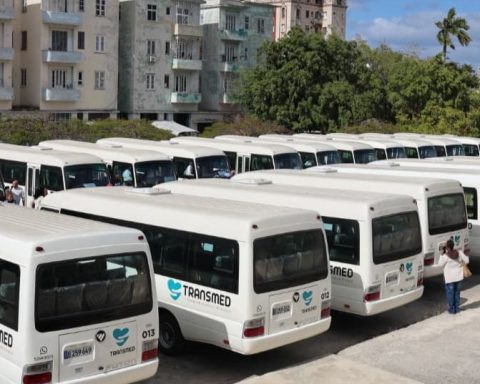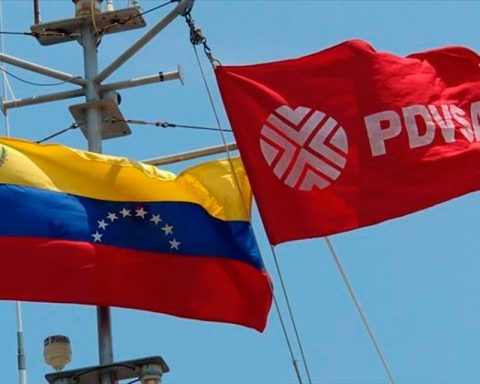Uruguay to implement climate change adaptation measures in coastal areas
In order to mitigate the impact of climate change on the Uruguayan coastal strip, the Ministry of the Environment will carry out specific actions in six selected sites. This arises from a pilot project funded by the European Union, through the Spanish Agency for International Development Cooperation (Aecid), in coordination with the Uruguayan Agency for International Cooperation (AUCI).
The results of the work entitled “Advances in the implementation of climate change adaptation measures in the coastal zone” were recently presented at the Executive Tower and are part of the National Coastal Zone Adaptation Plan (NAP Costas), which the Ministry of the Environment has been working on for several years.
Specifically, this project was executed between 2022 and 2024 and was developed in six coastal departments, choosing some local beaches: La Paloma in Rocha; Piriápolis in Maldonado; Atlántida in Canelones; Playa del Cerro in Montevideo; Kiyú in San José and Colonia del Sacramento in Colonia. At each site, a study was carried out on how climate change would affect rising sea levels and extreme events on beaches, and on works associated with those places, taking into account that 70% of the population resides there.
As a result, adaptation measures were defined for each of these six sites, including: replacement of sand where necessary; nature-based measures such as sand-catching fences or habitat recovery (wetlands, marshes, psammophilous vegetation); placement or removal of breakwaters. The NAP Costas work team is made up of specialized technicians from the ministry and municipalities.
The project was funded by the European Union through its Euroclima Programme, implemented by Aecid and coordinated with AUCI. The amount of support is around 270,000 euros.
The event was opened by the Undersecretary of the Environment, Gerardo Amarilla; the Ambassador of Spain, Santiago Jiménez Martín; the Chargé d’Affaires ai of the Delegation of the European Union, Markus Handke, and the manager of the Uruguayan Agency for International Cooperation, Claudia Romano, among other authorities.
Amarilla highlighted the degree of progress of the plan to reduce the impact of climate change in Uruguayan territory. He recalled that there is a NAP linked to the agricultural sector, a plan for adaptation of cities (drains, floods, trees) and this program that is linked to the coastal strip in Rio de la Plata and the Atlantic Ocean with the intervention of the national government and local governments.
“Uruguay contributes very little to greenhouse gases, but suffers the consequences of climate change: the increase in storms and the rise in sea level, which affects the economy, social activity, housing, tourism, work and the environment,” he said. “It is important to have these studies to know where to go and where to make investments that reduce the negative impacts,” he concluded.
INTERNATIONAL COOPERATION AS A TOOL
Romano explained that AUCI has been working with Euroclima for a long time, one of the largest and most experienced programs in terms of environmental issues. “We work with the European Union and with the member states, in this case with Spain, which has a long history of strong structural changes in the country and of having supported strategic guidelines that the country defines,” he explained. “Uruguay shares democratic values with Spain and is a country that has maintained a State policy independent of the sectors that have been in the government,” he added. He understands that trust is a fundamental factor in these processes.
Handke, meanwhile, said that Uruguay and the European Union share the same concern about climate change, defining the work carried out by the country as “tremendous work” and highlighting the coordination with the different actors. He recalled that Euroclima also finances other activities in the country such as sustainable livestock farming with support for small producers and SMEs, the fight against drought and water management.
Jiménez, meanwhile, said that this cooperation was made by mutual agreement with all the actors in an area in which Uruguay has a special interest. He added that Spain and Uruguay have been cooperating for several years and that Aecid has been present in the country for many years. “For Spain, Uruguay is a hub “It is very important. From Montevideo we carry out cooperation throughout the Southern Cone and we have a training center dedicated to training, it is a laboratory of ideas. For us, Uruguay is a fundamental destination for cooperation,” he concluded.
